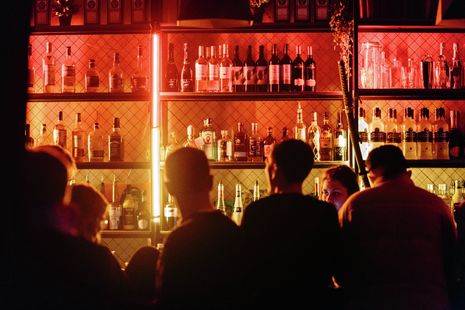Analysis: Reported rise in drink spiking
Varsity asks how effective this week’s club boycotts will be in tackling the reported rise in spiked drinks

A student boycott of Cambridge’s nightclubs took place on Wednesday this week (27/10) as part of a national response to a reported increase in spiking. The boycott was complemented by a Nightclub Safety Appeal drawn up by the students’ unions of Cambridge and Anglia Ruskin universities, as well as college JCRs, demanding that clubs take additional steps to protect revellers.
Cambridgeshire Police registered 25 reports of drink spiking since July 2021. Nationally, police recorded 198 confirmed reports of drink spiking, and 24 reports of spiking via needle injection that have received huge media coverage.
In a statement on spiking released on Tuesday (26/10), Cambridge SU Women’s officer Milo Eyre-Morgan addressed the issue of spiking by injection, writing that while “these reports have understably been extremely frightening for many students [...] there is also a lot of misinformation,” which they wished to dispel and “provide some reassurance.”
Eyre-Morgan encouraged students to read an article published by VICE News featuring interviews with scientists, doctors and nurses all saying that spiking via needle injection was “unlikely [to be] a widespread phenomenon” due to the technical difficulties involved.
David Caldicott, an emergency medicine consultant, said that the reports were “disconcerting” because “the technical and medical knowledge required to perform this would make this deeply improbable,” while adding that it was essential to take the reports “seriously and investigate to the hilt.”
Meanwhile, Helena Conibear, CEO of the Alcohol Education Trust, a charity that works to keep young people safe around alcohol, suggested that the recent reported rise in spiking correlated with “a rise in reporting” about drink spiking “during Freshers’ Week in the autumn.”
Varsity spoke to students about the reported rise in cases, some of whom were skeptical about the impact of these week’s boycotts.
One Homerton student said that she doesn’t really go to clubs anymore, because “spiking is unavoidable in these places” but that “the clubs could be doing more, and a boycott might kick them into gear.”
An anonymous King’s student told Varsity that she thinks the boycott “isn’t enough to enact change, because clubs can easily make up profits on Halloween.”
 News / Hundreds of Cambridge academics demand vote on fate of vet course20 February 2026
News / Hundreds of Cambridge academics demand vote on fate of vet course20 February 2026 News / Judge Business School advisor resigns over Epstein and Andrew links18 February 2026
News / Judge Business School advisor resigns over Epstein and Andrew links18 February 2026 News / Petition demands University reverse decision on vegan menu20 February 2026
News / Petition demands University reverse decision on vegan menu20 February 2026 News / CUCA members attend Reform rally in London20 February 2026
News / CUCA members attend Reform rally in London20 February 2026 News / Caius students fail to pass Pride flag proposal20 February 2026
News / Caius students fail to pass Pride flag proposal20 February 2026










